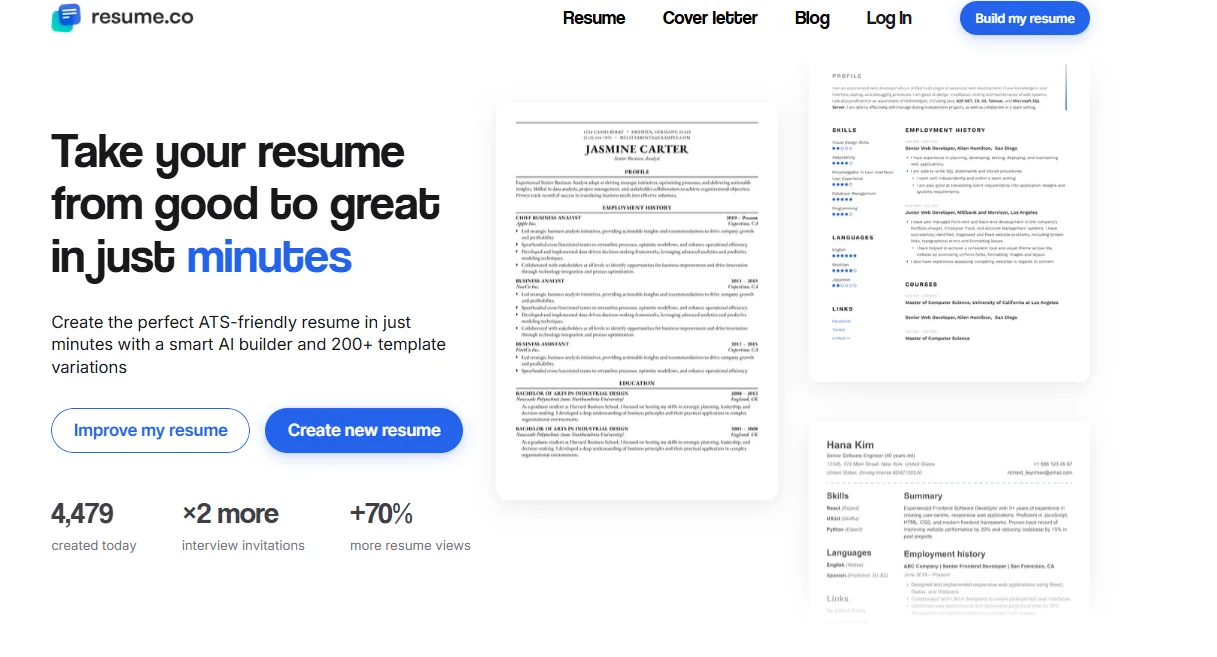Although it might not seem like it, learning how to ask for a raise is one of the most important skills you can develop in your career. It helps you advocate for your value and ensures you are fairly compensated for your work.
In this guide, you will learn when and how to ask for a raise, as well as what to say during the conversation to increase your chances of success. We will also cover common mistakes to avoid and tips on handling responses so you can feel prepared and confident.
Key Takeaways
To prepare before asking for a raise, determine the right time, gather specific examples of your value to build a strong case, and take note of common pitfalls.
Start your case by expressing appreciation and then lead with two to three examples of your measurable impact. Share market rates and industry standards to provide context for your request.
After the conversation, follow up with a recap email. It will show your professionalism, ensure you and your manager are on the same page, and provide a written record of your request.
Handle responses gracefully. If your request was denied, ask about what you can do to meet the criteria for future considerations. For example, what performance metrics should you focus on?
Preparing for Your Raise Request
Proper preparation sets the tone for how your request is taken. So, asking for a raise actually starts long before you walk into your manager’s office. This groundwork involves identifying the right time, gathering the right information, and avoiding common pitfalls.
When to Ask for a Raise
When to ask for a raise—after one year or any other time frame—depends on many factors and requires careful consideration.
You can do so during your performance review, as it provides a natural opportunity to discuss compensation alongside your contributions. Many companies have designated periods throughout the year for this purpose. It might coincide with budget planning cycles when managers have more flexibility to approve raises.
If you are still on the fence about how long you should wait to ask for a raise, watch for indicators like these:
When to Ask for a Raise
You are receiving regular positive feedback from your manager.
You are being entrusted with high-impact or visible projects.
Your colleagues or peers are asking you for guidance.
Your company is financially healthy, growing, and posting strong results.
Knowing when not to ask for a raise is also important. Bad timing can weaken your case and hurt your credibility. Avoid requesting raises during company layoffs, announced budget freezes, or immediately after receiving negative performance feedback. It is not a good idea to ask for a raise when your manager is dealing with high stress, as well.
What about how often you should ask for a raise? It is best to wait at least 12 months between requests unless you have had significant role changes or promotions. If you are new, it is generally best to focus on delivering and documenting results first.
Building Your Case
A strong case relies on a strong track record. Start by noting down all your recent achievements and connecting them to your company’s goal. Be specific and quantify them wherever possible. If you increased sales by a certain percent or reduced costs by a certain amount, for instance, document them.
To determine how much is reasonable to ask for a raise, it helps to research market salary rates for your position and location; check out sites like PayScale and Glassdoor. This will also let you show that your request is based on objective data. Typical annual increases range from 3% to 10%, depending on the industry you are in.
Prepare two to three examples that demonstrate your impact. For example, successful client relationships you have managed, members you have mentored, or problems you have solved to save the company money. Tying your achievements to metrics or market benchmarks is especially important if you are unsure how to ask for a raise when you are underpaid.
Having validation from others also helps. Consider asking clients, colleagues, and other departments for letters of recommendation. These can show your manager that your value extends beyond their perspective.
Avoiding Common Preparation Mistakes
Knowing what not to say when asking for a raise is more important than you might think. One that you should definitely avoid is basing your request on personal financial needs. Conversation starters like “I need more money to pay bills” or “My rent went up” focus on your problems rather than your value to the company.
You also should not justify your salary increase by comparing it with your coworkers. This can backfire and cause workplace tension. Focus on market rates and your own contributions instead. Do not threaten to quit unless you are prepared to leave, too. Ultimatums can severely damage your professional relationships.
Another common error is making your initial request for a raise via email without proper context. In other words, surprise your manager. It is better to ask for a raise in person and follow up afterward via email. But if you work remotely and cannot do this, schedule a video call to have the conversation face-to-face.
An easily overlooked mistake is waiting until you are frustrated or feel undervalued to begin this process. Emotional conversations rarely lead to positive outcomes, and your frustration may get in the way. Try to treat the conversation as “business as usual” and ground it in facts, results, and your ongoing value.
Having the Raise Conversation

Once you are prepared, the next step is having the actual discussion. For this, how you start, present your case, and respond to feedback matters.
Starting the Discussion
Do not bring up your salary during day-to-day encounters, but take the time to schedule a formal meeting with your manager. It is best to request at least 30 minutes and pick a private place to speak freely.
Begin by thanking your manager for their time and expressing appreciation for your current role. You can say something like, “I really enjoyed the opportunities in my role, and I would like to discuss my compensation in light of my contributions.” This helps you set a collaborative tone for the conversation.
Next, outline what you hope to accomplish during the meeting to set clear expectations. This might include reviewing your achievements, discussing market rates for your position, and exploring opportunities for a salary increase. Your manager will see that you have put thought into the conversation and are not just making an impulse request.
Presenting Your Case
Talk about your measurable impact first. For example, if you rewrote the company’s product manual, and this reduced customer support tickets by 20%, say that. Be specific so your manager will feel like giving you a raise is a smart investment.
To provide context for your request, share the research you have gathered about market rates. You can open with, “According to my research about industry standards...” Specify your salary expectations as a range, but avoid locking in an exact amount right off the bat. The number one tip for negotiating salary is to stay open to discussion!
Handling Responses and Objections
If your manager gives you a raise, thank them and ask whether you will need to wait for further approval from higher management. If your manager objects or brings up concerns, listen and respond thoughtfully.
Your manager might reject your request due to budget or timing issues or questions about your performance. Be sure to address these directly, but not defensively. You can provide additional evidence of your skills and qualifications or ask about what you can do to revisit this conversation in the future.
If your manager is surprised, you probably have not been communicating your achievements effectively. Make use of this opportunity to learn how they view your work and identify ways to communicate your value more clearly going forward.
If your manager does not agree to the raise, discuss alternatives like non-monetary compensation. Throughout the process, remember to remain professional; your ability to handle feedback gracefully will leave a lasting impression.
After the Conversation
After asking for a raise, following up respectfully and staying proactive helps you maintain your momentum and show that you take your professional growth seriously.
Following Up on Your Request
Within 24 hours, send a follow-up that summarizes your conversation. Include details like specific salary figures and agreed-upon timelines or next steps. Doing so shows your professionalism, ensures both parties are on the same page, and creates a written record of your request.
If your manager promised to discuss your request with higher management, ask about the appropriate time to follow up. While waiting, continue to perform at your best and maintain your relationships with others. Do not waste this time by reducing your effort or expressing frustration; keep contributing to your team’s success and documenting your accomplishments.
Exploring Alternative Compensation
You can consider other forms of compensation if a salary increase is not possible. Flexible work arrangements or additional paid time off can improve your work-life balance, giving you more time for personal priorities.
Bonuses can give you a confidence boost and add to your proven track record. Professional development stipends or opportunities to attend industry training might equip you with new transferable skills for better career mobility.
Some companies offer title changes that can position you for higher compensation in future budget cycles. Others may provide stock or profit-sharing options. If you cannot ask for a raise, non-monetary alternatives are worth discussing.
Planning Your Next Steps

You might receive a yes, no, or maybe after asking for a raise. Regardless, you need to plan your next steps. If you got the raise, set new performance goals to continue documenting your achievements and working toward additional advancement opportunities.
Reflect on your conversation and areas you can improve to build an even stronger case. This way, you will not have to worry about Googling “How to ask your boss for a raise, examples” when it is time for another sit-down.
If you did not get the raise or got a lower one than you expected, draw up an action plan to address the feedback you received. Perhaps you will need to learn new skills, take on other responsibilities, or exceed specific performance metrics.
Also, think about how long you should wait until you ask for a raise again. Twelve months is usually enough time to demonstrate improved performance. Keep a set date in mind so you have a deadline to work against.
Boost Your Value with Resume.co

Do not overlook the importance of maintaining an up-to-date profile when asking for a raise. Resume.co can help you document your achievements and present them in the best light.
Our tool offers ATS-friendly resume and cover letter templates tailored by experts, role-specific samples you can get inspiration from, and AI-assisted suggestions based on your industry.
You can customize a pre-made CV with intuitive text fields. Once you are done, download your CV in multiple formats. You can show it to your manager along with your old CV for a side-by-side comparison.
Try Resume.co today and create a compelling professional narrative that supports all your career goals.
Final Thoughts
Learning how to ask for a raise takes some time, but it is entirely possible with proper preparation. Time your ask, have a proven track record ready, and avoid common pitfalls that hurt your chances. Remember to build your case around measurable results and maintain a respectful tone.
Regardless of the outcome, the process of asking for a raise itself is valuable. It shows your professional maturity and commitment to growth. Use each request as a chance to understand your value, strengthen your relationship with management, and position yourself for continued development.
Frequently Asked Questions
#1. How much of a raise should I ask for?
How much you should ask for depends on the market rates for your role and your recent accomplishments. Usually, the increase ranges from 3% to 10%. If you are significantly underpaid, larger adjustments may be justified. However, these should be supported by strong evidence.
#2. When is it too soon to ask for a raise?
It is too soon to ask for a raise within the first six months of starting a new role unless your responsibilities have changed dramatically during that time. Some companies expect at least one year of performance before discussing a raise.
#3. What if my manager says the budget is frozen?
If your manager says the budget is frozen, ask about other forms of compensation. You can also ask when the next budget review will take place and request a follow-up conversation then.
#4. Should I get a job offer to leverage in negotiations?
You should not get a job offer to leverage in negotiations. Using a competing job offer could potentially strengthen your position, but it could also affect trust. It is better to focus on justifying a salary increase based on your contributions.
Related Articles
Learn When & How to Ask for a Promotion [15+ Effective Tips]
Career Advancement: 5 Steps to Move Forward Professionally
9 High-Income Skills You Can Learn to Get into Lucrative Fields


